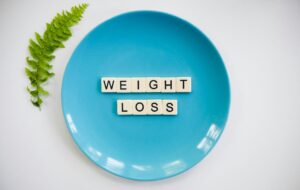Choosing the right diet plan can be a daunting task given the numerous numbers of options available. Each diet claims to offer the best results, but it’s essential to understand their principles and how they fit into your lifestyle before making a decision. This article compares several popular diet plans to help you make an informed choice.
1. The Keto diet plan:
The Keto diet plan, characterized by its high fat, moderate protein, and low carbohydrate intake, is designed to shift the body into a metabolic state known as ketosis. In ketosis, the body efficiently burns fat for energy instead of relying on carbohydrates, leading to weight loss and potential improvements in insulin sensitivity. However, the diet’s restrictive nature, eliminating most grains, fruits, and certain vegetables, can make it challenging to follow and may result in nutrient deficiencies over time.
Pros:
- Typically results in quick weight loss due to reduced carbohydrate intake.
- May improve blood sugar levels and insulin sensitivity, beneficial for diabetes management.
Cons:
- Highly restrictive and may be difficult to maintain, leading to potential yo-yo dieting.
- Can cause side effects such as the ‘keto flu’, fatigue, and constipation due to low fiber intake.
2. The Mediterranean diet plan
The Mediterranean diet is based on the traditional cuisines of countries like Greece and Italy. It emphasizes fruits, vegetables, whole grains, nuts, and olive oil, with moderate consumption of fish and minimal red meat. This diet plan is not only linked to weight loss but also to a reduced risk of heart disease, diabetes, and certain types of cancer due to its nutrient-rich, low-saturated-fat composition. However, it may not lead to rapid weight loss and can be costlier due to the high consumption of fresh produce and seafood.
Pros:
- Promotes heart health and reduces the risk of chronic diseases.
- Encourages diverse, balanced eating without strict restrictions.
Cons:
- May not facilitate fast weight loss.
- Higher costs associated with fresh produce and fish
4. The Paleo diet plan:
The Paleo diet plan encourages eating as ancient humans supposedly did, focusing on whole foods such as meat, fish, fruits, vegetables, nuts, and seeds, while avoiding processed foods, grains, and dairy. Advocates suggest it can lead to weight loss, improved glucose tolerance, and better blood pressure control. However, the diet is restrictive and eliminates whole food groups, which can lead to nutritional deficiencies. Moreover, the high cost of organic and grass-fed meats can make it less accessible.
Pros:
- Focuses on whole, unprocessed foods which can improve health markers.
- May lead to weight loss and better blood glucose control.
Cons:
- Excludes important food groups, potentially leading to nutrient shortfalls.
- Can be expensive and hard to maintain due to restrictive food choices.
4. The Vegan Diet:
A Vegan diet eliminates all animal products, including meat, dairy, and eggs, focusing instead on plant-based foods such as fruits, vegetables, grains, and nuts. This diet has been associated with numerous health benefits, including weight loss, lower blood pressure, and reduced risk of heart disease. However, if not well planned, it can lead to deficiencies in vitamins B12, D, iron, calcium, and omega-3 fatty acids. The diet also requires a significant lifestyle change and meticulous planning to ensure nutritional adequacy.
Pros:
- Linked to numerous health benefits including lower cholesterol and reduced heart disease risk.
- Ethical and environmental advantages by avoiding animal products.
Cons:
- Risk of nutritional deficiencies if not carefully managed.
- Requires significant lifestyle changes and meal planning.
5. Intermittent Fasting:
Intermittent Fasting (IF) involves alternating cycles of eating and fasting, which can vary from daily time-restricted feeding windows to full-day fasts. This approach does not specify which foods to eat but instead when you should eat them. Studies suggest that IF can lead to weight loss, improved metabolic health, and even extended life span. However, fasting can be difficult to adhere to, may lead to binge eating during non-fasting periods, and is not suitable for everyone, especially those with certain health conditions.
Pros:
- Simplifies eating patterns and can lead to reduced calorie intake and weight loss.
- May improve metabolic health and reduce the risk of chronic diseases.
Cons:
- Can be challenging to stick with due to hunger and social eating patterns.
- Not suitable for everyone, particularly individuals with certain health conditions.
Choosing the Right Diet for You:
When selecting a diet plan, consider your lifestyle, dietary preferences, health status, and weight loss goals. It’s crucial to choose a diet you can adhere to over time, as the best diet for weight loss is one that is sustainable and enjoyable.
Practical Tips for Choosing a Diet:
- Assess Your Food Preferences: Choose a diet that aligns with your eating habits and taste preferences.
- Consider Your Lifestyle: Ensure the diet fits your schedule and lifestyle.
- Set Realistic Goals: Pick a diet that helps you achieve your health and weight loss goals without extreme restrictions.
- Consult a Healthcare Professional: Before starting any new diet plan, it’s advisable to consult with a doctor or dietitian.
Conclusion
With so many diet plans available, it can be overwhelming to find the right one. By understanding the pros and cons of each and considering your personal needs and goals, you can select a diet plan that is sustainable and effective for you. Remember, the best diet is one that you can stick to in the long term and contributes to your overall well-being.







